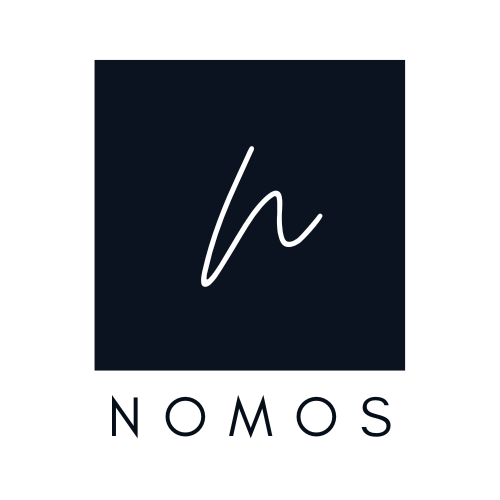Configuration Overview NOMOS provides flexible configuration through both YAML files and Python API, supporting everything from no-code to full-code development approaches.
Field Naming Compatibility Flexible Field Naming NOMOS supports both compact and descriptive field names for better flexibility and easier migration from older configurations.
Compact Form Descriptive Form Description Usage idstep_id / flow_idUnique identifier Steps and flows descdescriptionHuman-readable description Steps and flows toolsavailable_toolsAvailable tools list Steps pathsroutesStep transitions Steps totargetRoute target step Routes whenconditionRoute condition Routes egexamplesDecision examples Steps
YAML Configuration Basic Agent Configuration name : utility-bot persona : You are a helpful utility bot that can perform various calculations. # Step definitions steps : - step_id : start description : Handle user requests for mathematical operations. available_tools : - sqrt - calculate_area routes : - target : end condition : User is done with calculations - step_id : end description : Say goodbye to the user. start_step_id : start max_errors : 3 max_iter : 5 # LLM configuration llm : provider : openai model : gpt-4o-mini
Advanced Configuration Example Complete Configuration
Validation
# Agent identity name : barista persona : | You are a helpful barista assistant at Starbucks. You are kind, polite, and professional. start_step_id : start # Step workflow steps : - step_id : start description : | Greet customers and understand their needs. Use available tools to show menu options if needed. available_tools : - get_available_coffee_options routes : - target : take_coffee_order condition : Customer is ready to place an order examples : - context : "Customer asks for coffee options" decision : "Call get_available_coffee_options tool" visibility : "always" - step_id : take_coffee_order description : | Take customer orders including type, size, and modifications. available_tools : - get_available_coffee_options - add_to_cart - remove_item - clear_cart routes : - target : finalize_order condition : User wants to finalize the order - target : end condition : Customer wants to cancel - step_id : finalize_order description : | Get order summary and confirm with customer. available_tools : - get_order_summary - finalize_order routes : - target : end condition : Order is finalized or canceled - target : take_coffee_order condition : Customer wants to modify order - step_id : end description : Clear cart and end conversation graciously. available_tools : - clear_cart # Enhanced flows flows : - flow_id : order_management description : "Complete coffee ordering workflow" enters : - take_coffee_order exits : - finalize_order - end components : memory : llm : provider : openai model : gpt-4o-mini retriever : method : embedding # Tool configuration tools : tool_files : - barista_tools.py tool_defs : add_to_cart : args : - key : coffee_type desc : "Type of coffee (e.g., Espresso, Latte)" - key : size desc : "Size (Small, Medium, Large)" # LLM configuration llm : provider : openai model : gpt-4o-mini # Server configuration server : port : 8000 workers : 1 # Session storage session : store_type : memory default_ttl : 3600
# Validate your configuration nomos validate config.agent.yaml --verbose
Output: ✓ Configuration is valid! Configuration Details: Agent Name: barista Number of Steps: 4 Start Step ID: start LLM Provider: openai Recommendations: • Consider adding more examples for better decision-making • Flow configuration looks well-structured
Python API Configuration Basic Python Setup from nomos import Agent, AgentConfig, Step, Route from nomos.llms import OpenAI from nomos.models.flow import FlowConfig def get_time (): """Get the current time.""" from datetime import datetime return f "Current time: { datetime.now() } " # Define steps steps = [ Step( step_id = "start" , description = "Greet and offer to tell time or do calculations." , available_tools = [ "get_time" ], routes = [ Route( target = "calculation" , condition = "User wants math" ), Route( target = "end" , condition = "User is done" ) ], ), Step( step_id = "calculation" , description = "Perform mathematical calculations." , available_tools = [ "sqrt" , "pow" ], routes = [Route( target = "end" , condition = "Calculation complete" )], ), Step( step_id = "end" , description = "Say goodbye." , ), ] # Define flows flows = [ FlowConfig( flow_id = "math_workflow" , description = "Handle mathematical calculations" , enters = [ "calculation" ], exits = [ "end" ], components = { "memory" : { "llm" : { "provider" : "openai" , "model" : "gpt-4o-mini" } } } ) ] # Create configuration config = AgentConfig( name = "clockbot" , persona = "You are a friendly assistant for time and calculations." , steps = steps, flows = flows, start_step_id = "start" , llm = { "provider" : "openai" , "model" : "gpt-4o-mini" }, max_errors = 3 , max_iter = 5 , ) # Create and use agent agent = Agent.from_config(config, tools = [get_time]) session = agent.create_session()
LLM Configuration Supported Providers OpenAI
Mistral
Google Gemini
Ollama
HuggingFace
llm : provider : openai model : gpt-4o-mini
Requires: OPENAI_API_KEY llm : provider : mistral model : mistral-medium
Requires: MISTRAL_API_KEY llm : provider : google model : gemini-pro
Requires: GOOGLE_API_KEY llm : provider : ollama model : llama3
Requires: Local Ollama installation llm : provider : huggingface model : meta-llama/Meta-Llama-3-8B-Instruct
Requires: HUGGINGFACE_API_TOKEN tools : tool_files : - "barista_tools.py" # Python module - "tools.my_tools" # Package path external_tools : # Python package tools - tag : "@pkg/itertools.combinations" name : "combinations" # CrewAI tools - tag : "@crewai/FileReadTool" name : "file_read_tool" # LangChain tools - tag : "@langchain/google_search" name : "google_search" # MCP tools - tag : '@mcp/https://gitmcp.io/dowhiledev/nomos' name : gitmcp # API tools - Single endpoint - tag : "@api/GET/https://api.github.com/users/{username}" name : "get_github_user" # API tools - Multiple endpoints - tag : "@api/https://jsonplaceholder.typicode.com" name : "posts_api" map : get_posts : "GET/posts" get_post : "GET/posts/{id}" create_post : "POST/posts" update_post : "PUT/posts/{id}" delete_post : "DELETE/posts/{id}" headers : Authorization : "Bearer ${API_TOKEN}" tool_defs : add_to_cart : desc : "Add item to cart" args : - key : coffee_type desc : "Type of coffee (e.g., Espresso, Latte)" type : str - key : size desc : "Size (Small, Medium, Large)" type : str get_github_user : desc : "Get GitHub user information" args : - key : username desc : "GitHub username" type : str - key : per_page desc : "Number of results per page" type : int default : 30 get_posts : desc : "Get all posts from API" args : - key : page desc : "Page number" type : int default : 1 - key : limit desc : "Number of posts per page" type : int default : 10
# tools/my_tools.py def greet ( name : str ) -> str : """Return a personalized greeting.""" return f "Hello { name } !" def calculate_tip ( bill : float , percentage : float = 15.0 ) -> float : """Calculate tip amount.""" return bill * (percentage / 100 ) # Export tools for discovery tools = [greet, calculate_tip]
Configuration Validation Always Validate Use nomos validate before deploying to catch configuration errors early.
Validation Command nomos validate config.agent.yaml --verbose
What Gets Validated
Syntax & Structure YAML syntax, required fields, data types
Reference Integrity Step IDs, route targets, flow references
Best Practices Configuration recommendations
Field Compatibility Both compact and descriptive naming
Example Validation Output ✓ Configuration is valid! Configuration Details: ├─ Agent Name: barista ├─ Number of Steps: 4 ├─ Start Step ID: start ├─ LLM Provider: openai └─ Session Store: memory Warnings: • Step 'calculation' has no examples - consider adding some Recommendations: • Add persona for more engaging interactions • Consider using flows for complex workflows
Session Store Configuration Memory (Default)
Production
session : store_type : memory default_ttl : 3600
Sessions stored in memory, lost on restart. session : store_type : production database_url : postgresql+asyncpg://user:pass@postgres/db redis_url : redis://redis:6379/0 kafka_brokers : kafka:9092 kafka_topic : session_events events_enabled : true
Persistent storage with caching and events. Environment Variables Variable Description Required OPENAI_API_KEYOpenAI API key If using OpenAI MISTRAL_API_KEYMistral API key If using Mistral GOOGLE_API_KEYGoogle API key If using Gemini HUGGINGFACE_API_TOKENHuggingFace token If using HuggingFace DATABASE_URLDatabase connection If using production session store REDIS_URLRedis connection If using Redis caching
Configuration Examples Schema Generation Generate JSON schema for IDE support:
nomos schema --output agent.schema.json
Use in your YAML files:
# yaml-language-server: $schema=./agent.schema.json name : my-agent # Your configuration gets autocompletion and validation

